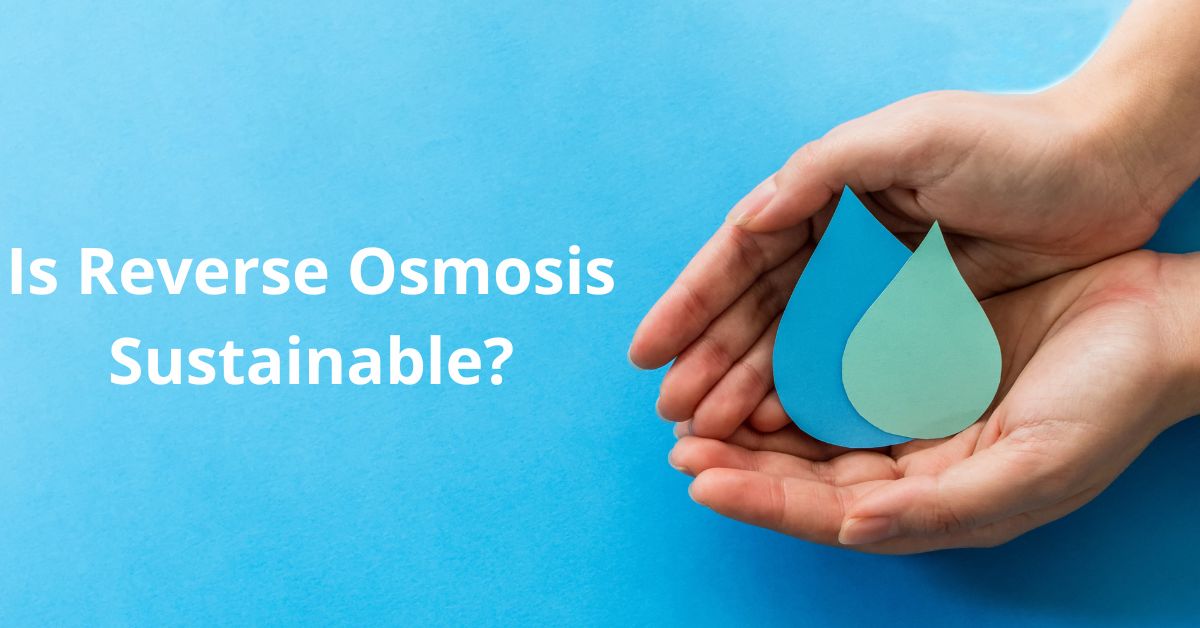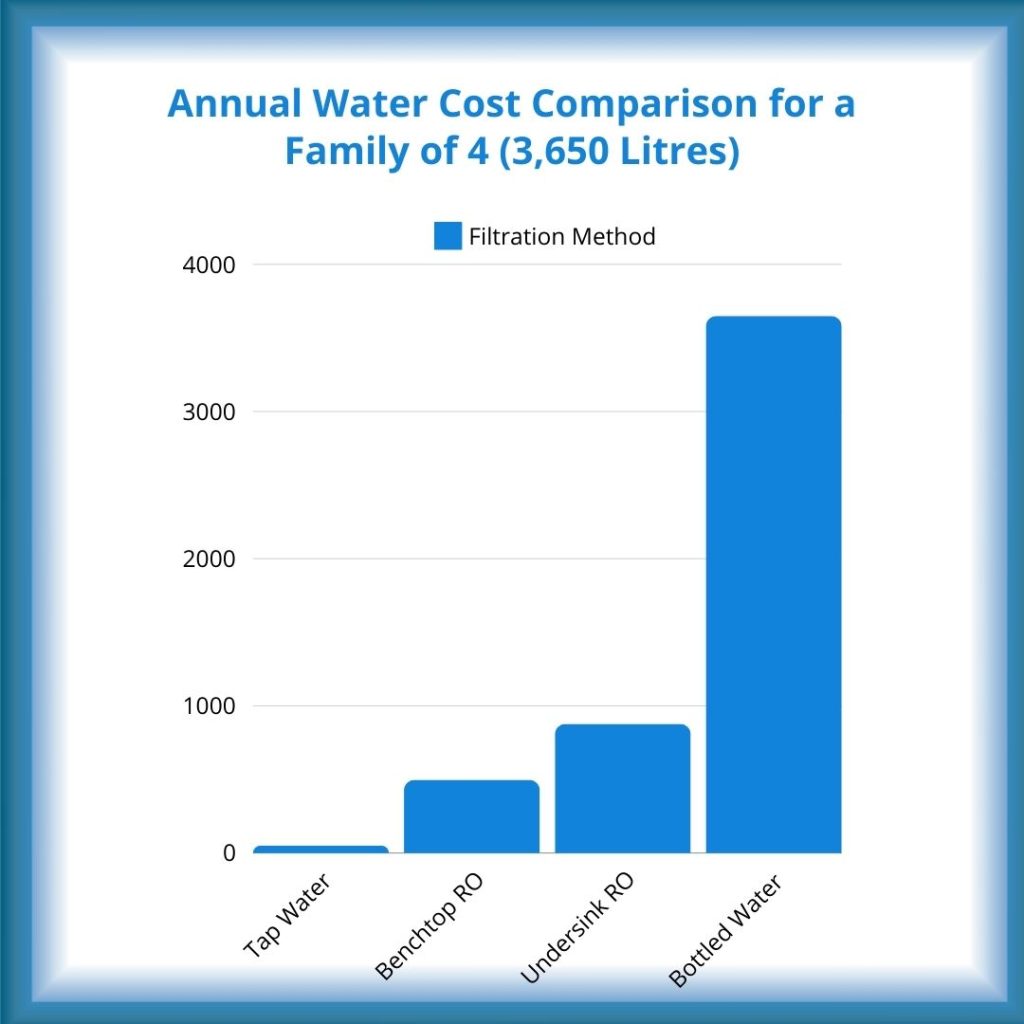As a professional in the water treatment industry, I’ve often thought about the sustainability of our water consumption habits. One question that frequently arises is: Is reverse osmosis sustainable? Given the popularity of RO systems, it’s crucial to explore their environmental impact. Let me share my insights on this topic.
Is reverse osmosis bad for the environment?
To answer this question, we need to consider various aspects of reverse osmosis filtration systems and their environmental implications. RO systems do have some ecological considerations but my research and experience suggest they often prove to be a more sustainable choice compared to alternatives like bottled water for the following reasons:
Water Efficiency
Initially, the water waste associated with reverse osmosis water filters was a concern. Traditional systems could waste several litres for each litre of purified water produced. Modern RO technology has made significant improvements in efficiency. Many benchtop reverse osmosis and undersink reverse osmosis units have substantially reduced waste ratios. To put this in perspective, when we consider the water used in the production and transportation of bottled water, RO systems appear as the more water-efficient option.
Energy Efficiency
One of the most impressive features of reverse osmosis systems is their energy efficiency. Unlike many traditional RO systems that require electricity to power a pump, new innovative designs operate without any electrical input. This is achieved through the clever use of water pressure already present in your home’s plumbing system.
The absence of electrical components reduces energy consumption to zero, simplifies the installation process, and eliminates the ongoing cost of electricity for water purification. When compared to the energy used in bottling and transporting water, our RO systems stand out as an exceptionally eco-friendly choice.
For those particularly concerned about energy use, our range of gravity-fed benchtop water filter and efficient undersink water purifier offer the perfect solution. These systems provide high-quality water purification without drawing a single watt of electricity, making them both environmentally responsible and cost-effective in the long run.
Plastic Reduction
One of the most significant environmental advantages I’ve observed with RO systems is the dramatic reduction in plastic waste. Installing a reverse osmosis water filter in your home eliminates the need for countless plastic water bottles. This substantially reduces your plastic footprint and contributes to combating the global plastic pollution crisis.
While RO systems do use plastic components, such as the water filter cartridge, these are replaced far less frequently than the number of plastic bottles one would otherwise consume. Moreover, I’ve noticed a trend among manufacturers focusing on creating more durable, long-lasting cartridges to further reduce waste.
Chemical-Free Purification
In my professional experience, I’ve come to appreciate that reverse osmosis filtration is a physical process that doesn’t require chemical additives to purify water. By avoiding chemical additives, RO systems help reduce the release of potentially harmful substances into the environment.
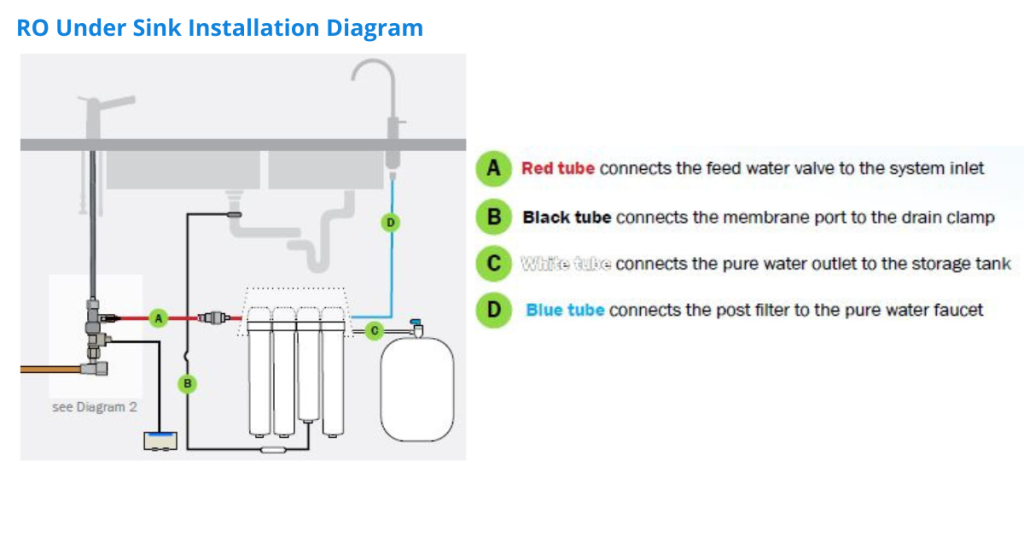
Longevity and Durability
I can attest that a well-maintained reverse osmosis system can last for many years. Whether you opt for a benchtop reverse osmosis unit or an undersink reverse osmosis system, proper care can significantly extend its lifespan. This longevity contributes to its sustainability by reducing the need for frequent replacements and the associated manufacturing and transportation impacts.
Preservation of Water Sources
An often overlooked benefit I’ve observed is that by providing clean water at home, reverse osmosis water filter can reduce the demand for bottled water. This, in turn, can help preserve natural water sources that might otherwise be exploited for bottling. It’s a positive ripple effect that extends beyond individual households.
Optimising Your RO System’s Sustainability
Based on my professional experience, here are some strategies to maximise the sustainability of your reverse osmosis water filter:
Select an Efficient Model: When advising clients on reverse osmosis water filter selection, I always emphasise the importance of choosing models with high efficiency ratings and NSF certification.
Regular Maintenance: I cannot stress enough the importance of replacing your water filter cartridge as recommended by the manufacturer. This ensures optimal operation, prolonging the system’s life and maintaining its water and energy efficiency.
Responsible Wastewater Management: I often suggest using the “waste” water from RO systems for other purposes like watering plants or cleaning, effectively offsetting the water waste concern.
Quality Component Selection: When replacing parts, I advise opting for high-quality, durable components that will last longer and reduce the frequency of replacements.
Appropriate System Selection: always choose a system that fits your household’s specific needs. A benchtop water filter might suffice for a small household, while a larger family might benefit more from an undersink water purifier.
Countertop Reverse Osmosis Water Filter
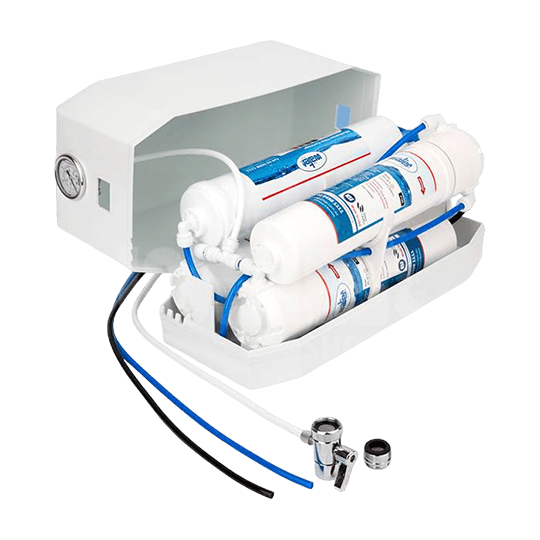
Undersink Reverse Osmosis Water Filter
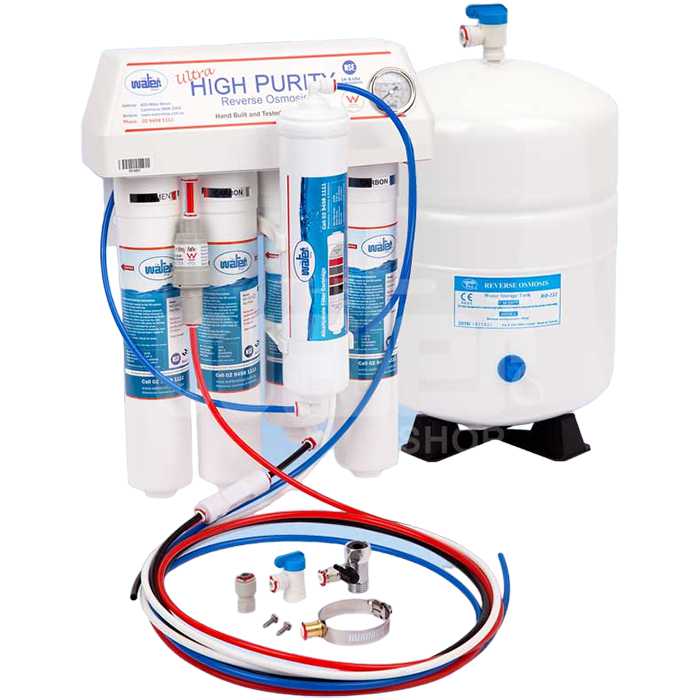
The Broader Perspective
In my years of working with water treatment systems, I’ve learned the importance of considering the bigger picture when evaluating sustainability. While RO systems do have some environmental impacts, these are often miniscule in comparison to the alternatives.
Consider the environmental cost of bottled water: the plastic production, the energy used in bottling and transportation, and the waste generated. Alternatively, consider the environmental impact of consuming water contaminated with pollutants, which can lead to health issues and increased medical interventions, each with its own environmental footprint.
In my professional assessment, a reverse osmosis system often represents a net positive for the environment. By providing clean, safe water at home, these systems reduce reliance on bottled water, decrease plastic waste, and can even help conserve energy in the long run.
Moreover, I’m encouraged by the advancements I’ve seen in RO technology. Many manufacturers are prioritising sustainability, creating systems with improved water efficiency, longer-lasting components, and even incorporating recycled or eco-friendly materials in their construction.
The Human Element
In my work, I’ve observed an often-overlooked aspect of sustainability: the human factor. When people have access to clean, great-tasting water at home, they’re more likely to stay hydrated. This can lead to better health outcomes, potentially reducing the need for medical interventions that come with their own environmental costs.
Additionally, I’ve noticed that having a reliable source of clean water at home often fosters a greater appreciation for water as a precious resource. This awareness frequently leads to more conscientious overall water use, extending the sustainability benefits beyond just drinking water.
The Key to Sustainable RO Usage
So, is reverse osmosis sustainable? In my opinion it’s not a perfect solution but the answer is generally yes. When compared to alternatives like bottled water, a well-chosen and properly maintained RO system can be a more environmentally friendly option.
The key lies in making informed choices. Whether you opt for a benchtop reverse osmosis unit, an undersink reverse osmosis system, or another type of water filter like benchtop water filter, I recommend considering the efficiency of the system, its lifespan, and how it fits into your overall water consumption habits.
Sustainability isn’t just about the product itself, but how we use it. By choosing an efficient reverse osmosis water filter, maintaining it properly, and being mindful of our water use, we can enjoy clean, safe water while minimising our environmental impact.
As we continue to face global water challenges, I believe technologies like reverse osmosis will play a crucial role in providing sustainable access to clean water. By understanding and optimising these systems, we can all contribute to a more sustainable future. One glass of pure water at a time.

